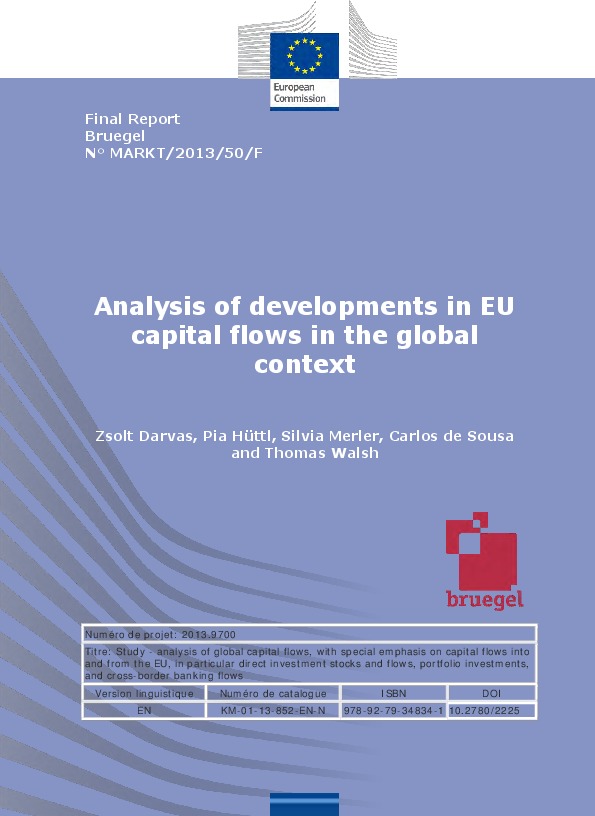External Publication
Analysis of developments in EU capital flows in the global context
This report reviews the key theoretical foundations underlying the benefits and risks of net capital flows, in particular large, persistent inflows or outflows, and the significance of gross flows and their composition.
This report reviews the key theoretical foundations underlying the benefits and risks of net capital flows, in particular large, persistent inflows or outflows, and the significance of gross flows and their composition. We analyse global capital flows between country groupings. We conclude that global flow patterns changed significantly and Europe has been left behind. The magnitude of capital outflows from Russia and Ukraine due to geopolitical developments have been much smaller than during the financial crisis. In Europe, financial disintegration, which began with the financial crisis, has not been reversed when considering various indicators of financial stocks and flows. Turning to foreign assets and liabilities, we that see central and eastern European countries experienced large negative spreads on equity, and that some larger EU member states succeeded in somewhat replicating the US’s privilege on equity returns. Correlation between returns and revaluations was small, suggesting revaluation gains did not compensate low returns. Using bilateral data and panel econometric models we examine determinants of capital flows and stocks. Euro membership boosted debt flows, while EU membership increased equity flows. Global uncertainty reduces capital flows, but higher financial integration dampens this effect. We calculate financial weighted real effective exchange rates and government bond yields and spreads.








